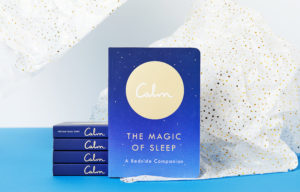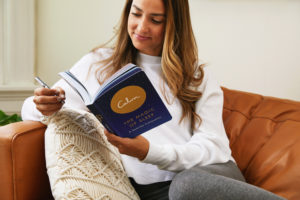Insomnia used to be considered a nuisance. Now we know that sleep deprivation contributes to serious chronic illness including heart disease, diabetes, cancer, dementia and even obesity. As if it weren’t bad enough tossing and turning into the small hours, it’s making you fat too. Life can be a bitch.
The good news is all the good quality information on sleep problems which is emerging. One suggestion is, rather than staring at the ceiling during the early hours, get up and read – and Calm – The Magic of Sleep – was written by Michael Acton for this very situation.
It’s a fairly light-hearted book – but then you don’t want to be studying heavy facts at 2am. However it is informative. It explains the science – what happens during sleep, the benefits, what makes us fall asleep and what stops us sleeping. There are nice easy quizzes to help us establish our own sleep type and set up good sleep habits and sleep hygiene.
Much of the book is dotted with sleep trivia and interesting stories – great to distract you before you settle back down to sleep again.
There are short sections on specific issues, such as childhood and adolescent sleep needs and how to deal with them, useful for any parent, particularly those whose own sleep problems stem from a crying baby.
He’s also included a fascinating section on dreams, with suggestions on how to keep a dream journal, which is very interesting.
The book doesn’t pretend to be an encyclopaedia on all things sleep, and in fact the author refers us to Matthew Walker’s Why We Sleep for more detailed science, direct from a sleep scientist. However it still manages to slip in a lot of useful information in an easy and digestible style – with attractive illustrations and amusing quotes.
It’s linked to the Calm sleep app available at http://www.calm.com which you can try for free. This provides guided meditations, breathing coaching and special bedtime stories for adults with music and the occasional celebrity narrator.
As the book explains, many of nature’s sleep triggers, such as darkness, elude us in this modern world of city lights and mobile phone screens, and it provides many tips on how to restore our body’s natural rhythms – with recipes for calming herbal teas and advice on the best sleep positions.
Acton explains to us that sleep isn’t just dead time – one thought-provoking insight was a study where language students remembered more new vocabulary if words in the new language were played to them whilst they slept. Sports scientists are discovering that good quality sleep can give that competitive edge which makes the difference between a silver and gold. So good sleep is more important than we realise for our health and life success.
Acton’s suggestions on how to get the best sleep are definitely more helpful than W.C. Fields’ contribution, ‘The best cure for insomnia is to get a lot of sleep.’ His book is certainly worth reading if you need help with sleep.
By Dr K Thompson, author of From Both Ends of the Stethoscope: Getting through breast cancer – by a doctor who knows
http://www.amazon.co.uk/dp/B01A7DM42Q http://www.amazon.com/dp/B01A7DM42Q
http://faitobooks.co.uk
Note: These articles express personal views. No warranty is made as to the accuracy or completeness of information given and you should always consult a doctor if you need medical advice.


